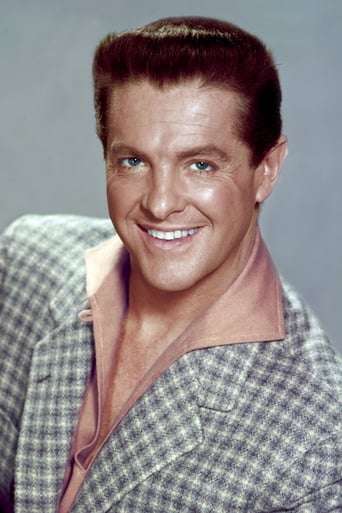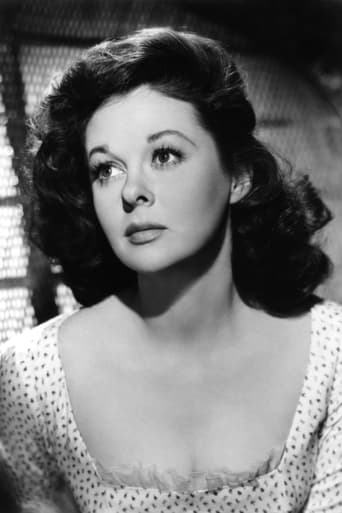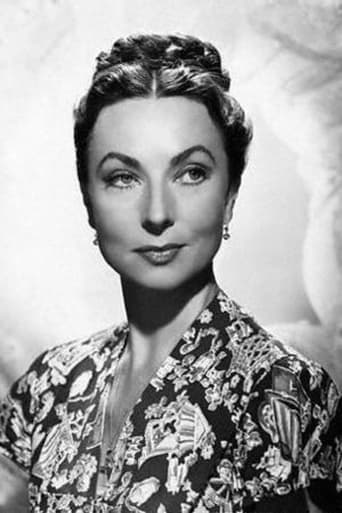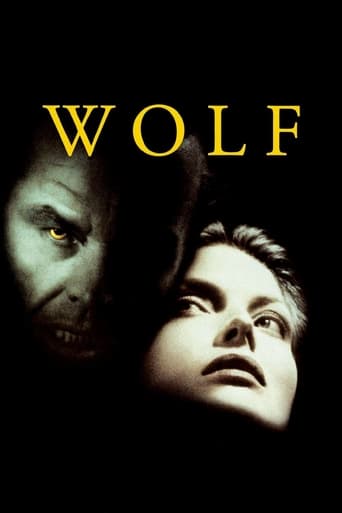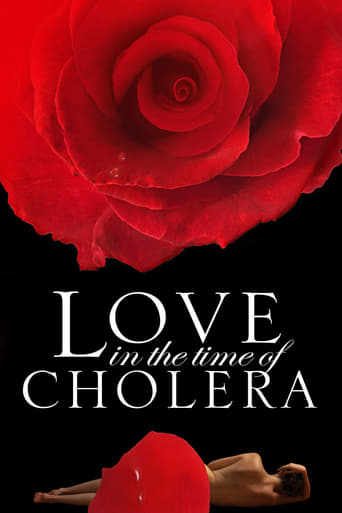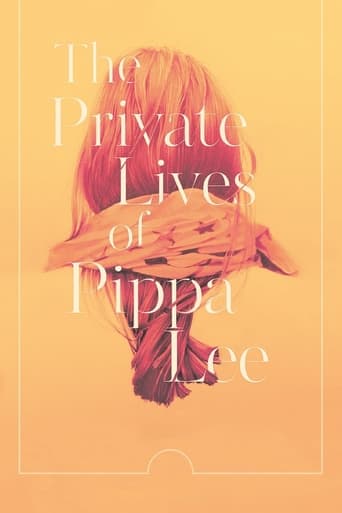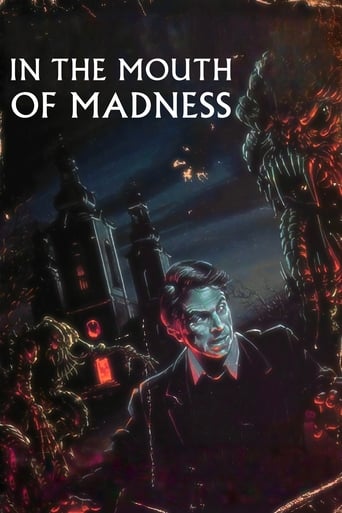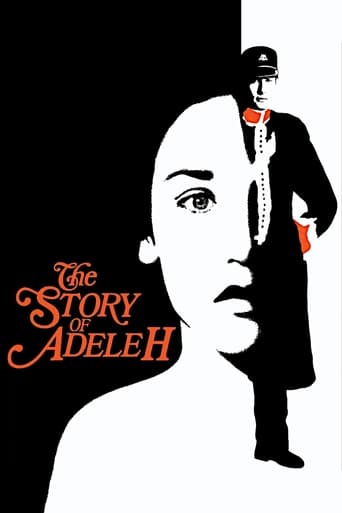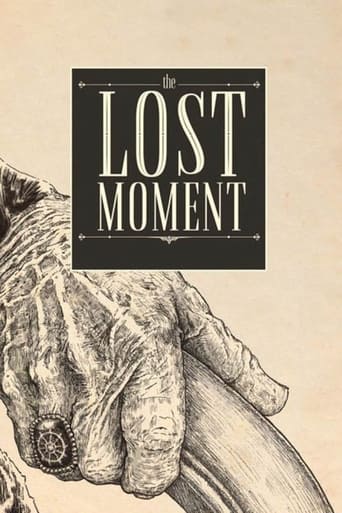
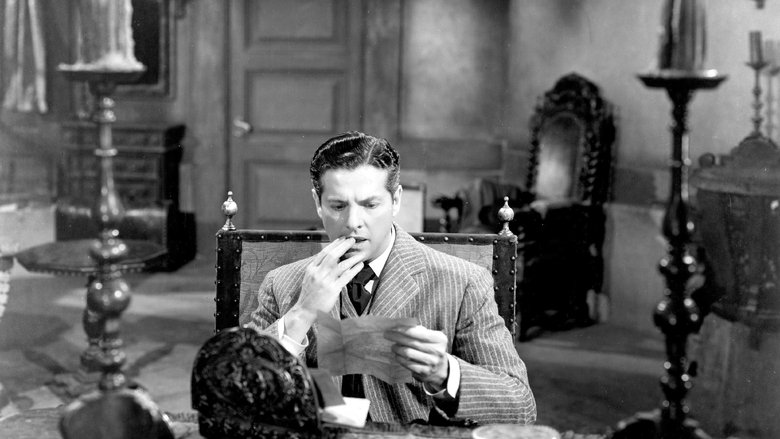
The Lost Moment (1947)
In a long flashback, a New York publisher is in Venice pursuing the lost love letters of an early-19th-century poet, Jeffrey Ashton, who disappeared mysteriously. Using a false name, Lewis Venable rents a room from Juliana Bordereau, once Jeffrey Ashton's lover, now an aged recluse. Running the household is Juliana's severe niece, Tina, who mistrusts Venable from the first moment. He realizes all is not right when late one night he finds Tina, her hair unpinned and wild, at the piano. She calls him Jeffrey and throws herself at him. The family priest warns Venable to tread carefully around her fantasies, but he wants the letters at any cost, even Tina's sanity.
Watch Trailer
Cast


Similar titles
Reviews
Robert Cummings is a literary publisher who would love to get his hands on the lost love letters of a famous fictional poet. The recipient of the letters is still alive, but at 105 years old, she's a recluse in her Venice home. Bob travels to Venice, pretending to be a mere lodger in their home, but secretly hoping to find the letters, steal them, and then publish them. The woman's young niece, Susan Hayward, is extremely strict, cold, and suspicious of Bob. There's definitely something strange about the house, which was the last place the poet was seen alive. . .The Lost Moment is definitely creepy, a film to be added to Halloween movie nights for those of you who don't partake in the blood-and-guts franchises. Agnes Moorehead plays the old woman, and for most of the film, all you see of her are her ancient, gnarled hands. She's filmed in shadows or from behind, but the expression on Bob's face shows how decrepit and horrifying she must look. There's such an element of mystery and spookiness about the house, from the moment Susan Hayward opens the door. Prepare to get goosebumps! You won't know who to trust, or what they're hiding. For fans of Suzy, she looks very beautiful in this one; it'll come as no surprise she vied for Scarlett O'Hara!
No need to detail the plot since others have done it better than I can.Once again I'm reminded that Susan Hayward was one of Hollywood's finest actresses despite her glamorous good looks. Here she does triple duty while under the spell of an ossified aunt (an unrecognizable Moorehead) and, of course, a darkly haunted mansion. One minute she's severely repressed Tina; the next she's a deluded but happy Tina; and finally she's a liberated Tina, who's happily her true self. The versatile actress manages all three persuasively, though repressed Tina in her severe hair bun almost had me under the couch.If Tina's having trouble with her identity, so's Venable (Cummings) who's at the mansion under false pretenses. But once he's scoped out a flowing-haired Tina, he's having trouble deciding whether he's really a sneaky publisher on a lucrative mission or just another hormonally driven ankle-chaser. Sunny actor Cummings may seem an odd choice for roaming dark mansions, still he low-keys throughout, allowing the story's Gothic merits to remain uppermost.And what great atmosphere the staging produces. Sure, events never leave the soundstage, yet that move allows full artistic control of visual effects, which are as much a movie presence here as the performers themselves. And, oh yes, mustn't overlook poor Joan Loring as the repressed servant Amelia. Hers is a movingly soulful performance that at times is almost tearful. Too bad her character track just sort of vanishes to no conclusion. And that's a downside in the script, as John Archer's rather villainous character is also abruptly abandoned for no apparent purpose. It may be that the screenplay tried to adapt too much of the Henry James novel and ended up cutting some cornersAll in all, this is vintage Hollywood hitting on at least seven cylinders despite somewhat derivative material. And a lot of that success I think is owed to outstanding producer Walter Wanger, a position in the production chain that's too often overlooked.
'The Lost Moment' is worth watching - not too bad of a film. It's a romantic-drama (with a bit of a mystery and with a dash of thriller). I was hoping for a bit more with the ending I guess because I was left with a disappointed feeling at the end of the film.Lewis Venable (Robert Cummings) is a publisher and he is after the love letters of an early-19th-century poet, Jeffrey Ashton, to his beloved Juliana Borderau (Agnes Moorehead). Lewis pretends to be a writer and rents a room from Juliana Borderau in hopes to gain the love letters. Juliana has a niece named Tina Bordereau (Susan Hayward). Tina has a split-personality: her real self, Tina, and that of her aunt Juliana. Tina thinks she is her aunt Juliana from time to time. Lewis finds himself in a mystery surround Juliana, Tina, and the love letters of Jeffrey Ashton. I enjoyed the film - I was just disappointed with the ending because we never got a real explanation about Tina - an explanation for the split in her personality. 7/10
Henry James, with his interest in minute psychological examination of his characters and his complex, ornate prose style, has never struck me as being the most cinematic of writers, but in fact there have been some decent film adaptations of his work, such as William Wyler's "The Heiress", based upon his "Washington Square", "The Innocents" from his "The Turn of the Screw" and three Merchant-Ivory productions, "The Europeans", "The Bostonians" and "The Golden Bowl"."The Lost Moment" is, as far as I am aware, the earliest James adaptation for the cinema, made two years before Wyler's film. It was the only film ever directed by Martin Gabel, better known as an actor, but not particularly well-known even for that. It is loosely based upon James's "The Aspern Papers" and is set in Venice in the early 1900s. Lewis Venable, a publisher, arrives in the city in search of the love letters written by the poet Jeffrey Ashton, believing that if he can secure them and publish them he will make a fortune. Ashton (Jeffrey Aspern in James's story) was an early-19th-century Romantic poet, an American contemporary of Keats and Shelley, who disappeared mysteriously in 1843. Venable discovers that Ashton's mistress, Juliana Bordereau, is still alive at the age of 105 and concludes that the letters must still be in her possession. Using a false name, he rents a room in her palazzo.Living with Juliana is a strange young woman, Tina, whom she describes as her niece, although there must be more than one generation between them. Tina is beautiful but austere, dressing in black and wearing her hair severely scraped back, and makes it quite clear that she does not trust Venable. Yet there is another side to her character. One night Venable finds Tina with her hair loose, wearing a white, old-fashioned dress of the mid-nineteenth century, playing the piano. She declares her love for Venable, but calls him "Jeffrey" and clearly believes him to be Ashton and herself to be the young Juliana.Ever since at the early seventies, the era of Visconti's "Death in Venice" and Roeg's "Don't Look Now", it has been virtually obligatory for films set in Venice to celebrate the city's visual beauty. In the 1940s, however, even after the war in Europe had finished, tight budgets often precluded location shooting, and "The Lost Moment" is not a film of that sort. It is made in black-and-white rather than colour, with most of the action taking place indoors inside Juliana's gloomy palazzo. The atmosphere is one of claustrophobia, of Gothic melancholy reminiscent of that found in a number of other American films from the forties and early fifties, such as Hitchcock's "Rebecca" and "Notorious", Max Ophuls's "Caught" and Robert Wise's "The House on Telegraph Hill". (As in "Rebecca", the house turns out to be hiding a dark secret).Although there is a rational explanation for the strange events surrounding Tina- namely that she is suffering from some psychiatric illness- other, unearthly, explanations might suggest themselves to the viewer; at times it seems that Tina is not an individual in her own right but rather the young Juliana, somehow caught in a time-warp and co-existing with her older self. It is notable that the late forties also saw a number of films on the subject of psychiatry, of which "Spellbound" is perhaps the most famous, as well as supernatural fantasies like "A Portrait of Jennie". Although no psychiatrist appears in the film, there is a Catholic priest, who plays a somewhat similar role.There are some weaknesses in the film; the subplot involving Venable's associate Charles is not well integrated into the film, and Charles's motivation is never made entirely clear. Robert Cummings as Venable is a rather bland and unconvincing hero. Overall, however, the film is a good one. There is one particularly good performance from Susan Hayward as Tina. Hayward was always an unpredictable actress; at her best she could be very good, but she had the infuriating ability to give bad performances not only in bad films (e.g. "The Conqueror") but also in otherwise reasonably good ones (e.g. "Demetrius and the Gladiators"). Here, however, she is excellent, coping brilliantly with the difficult challenge of playing what is effectively a double role, the severe, repressed "Black Tina" and the free, uninhibited "White Tina". Agnes Moorehead, unrecognisable beneath her make-up, is also good as the aged Juliana.Apart from Hayward, the film's main asset is its brooding atmosphere of mystery and Gothic menace. It is not quite the story that James wrote- indeed, in many ways it is closer to M R James than Henry, and closer to a mixture of Charlotte Bronte, Daphne du Maurier and M G Lewis than either. It is, however, a remarkably effective piece of cinema. I am surprised that Gabel did not go on to direct more films. 8/10


